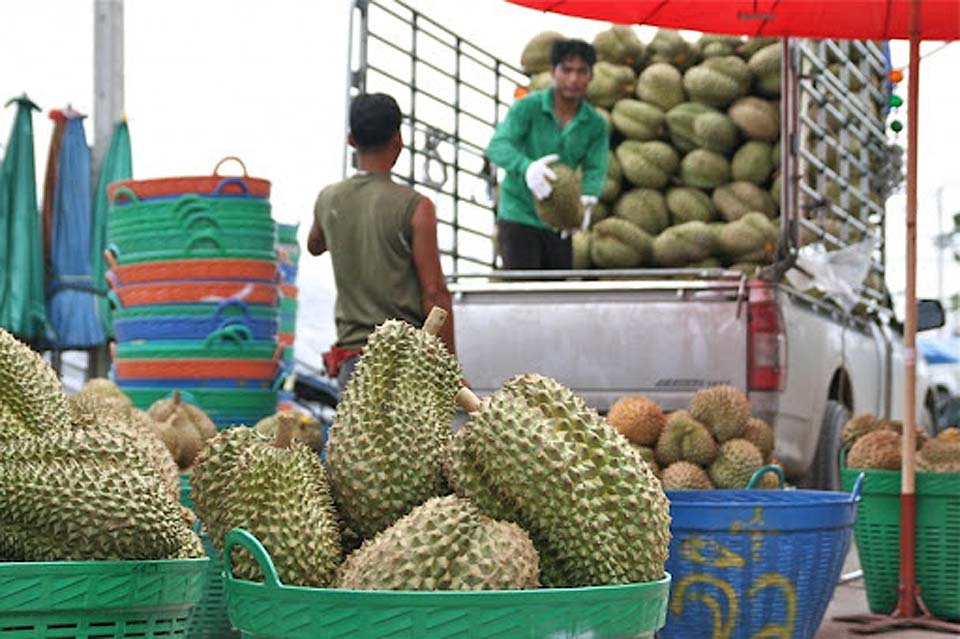
China will temporarily allow business owners to export Thai fruits into the country for two weeks starting from January 4.
According to the Thai Office of Agricultural Affairs at Guangzhou, Chinese authorities have reopened the Pingxiang land port in Guangxi autonomous region and will allow Thai fruit exports into the country from January 4-17, 2022. The reopening of the port is expected to help alleviate a situation where fresh Thai fruit exports – such as durians and longans – were being held at Dongxing border. This prompted exporters to request assistance from the Thai and Chinese governments
Agriculture and Cooperatives Minister Chalermchai Sri-on said he held discussions with the Chinese consulate on ways to ease the situation. Thai fruit exports into China have been affected by prevention measures and protocols to prevent the spread of COVID-19.
Exporters will be accommodated by Chinese authorities to revise their phytosanitary certificates from their entry at Dongxing port to Pingxiang port from January 1-3. They will then be approved by the customs department, allowing for the export of Thai fruits into China via Pingxiang train station. Chinese authorities will immediately close the border if they find any COVID-19 contamination so exporters must maintain strict prevention measures and ensure the safety of their produce.
According to reports, more than 2 million tons of Thai fruit were exported to China from January – October 2021, valued at 148 billion baht. Top produce included durians, longans and young coconuts. However, export figures saw declines due to customs delays in the latter months of 2021. (NNT)
 |
 |
 |





